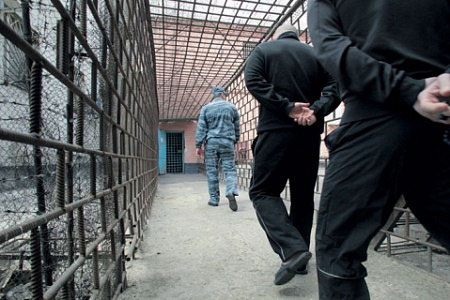Ukrainian Criminal Legislation Provides for the Right to Release from Punishment for Committing a Criminal Offense on Various Conditions.
Initiating release from punishment can be done by the accused themselves, providing the court with the appropriate petition, and, if necessary, attaching relevant evidence or their defender. Of course, the prosecutor can also do this, but it is better not to rely on it.
In this article, we will consider the specifics of unconditional, conditional, and conditional-early release from serving a sentence. Each of these forms of release from punishment has its requirements for the procedure, which must be fulfilled or present to obtain such release.
About the Right to Release from Punishment Without Any Conditions
The court may release a person from punishment who has committed a criminal offense punishable by a fine of no more than 170,000 hryvnias or imprisonment for up to five years or any punishment not associated with imprisonment.
To exercise this right, it is necessary to convince the court that the accused has impeccable behavior, conscientiously approaches work, and at the moment, this person is not socially dangerous. In this case, unconditional release from punishment for the committed crime takes place.
About the Right to Release from Punishment with Conditions
A separate type of release from the main punishment is release with conditions. Such a condition is not committing a new crime and fulfilling the obligations imposed by the court during the probationary period, the duration of which is determined by the court and can be from one to three years.
The court may apply release from punishment with conditions to persons sentenced to imprisonment for up to five years, restriction of liberty, corrective labor, or service restrictions for servicemen.
To exercise the right to release from punishment with conditions, the person who committed the crime must cooperate with the prosecutor. Taking into account the specific circumstances of the case, the person must decide on the type of cooperation, namely, admitting guilt or reconciling with the victims. Cooperation with the prosecutor is formalized by a relevant agreement, which fixes the agreement on the conditions of cooperation from the side of the accused, namely, release from serving the punishment with probation. In the case of release from the main punishment with conditions, the court may still apply additional punishments, such as a fine, deprivation of a special rank, or the right to hold certain positions or engage in certain activities.
A convicted person who has fulfilled the duties imposed on him during the probationary period and has not committed a new crime is released from the punishment imposed on him by the court.
On the Right to Conditional Early Release from Punishment Before Its Completion
In the case where a certain term of punishment has already been served, provided that the person proves their rehabilitation through exemplary behavior and attitude towards work, the court may release such a person from further serving the punishment.
The duration of the served term for obtaining the possibility of early release depends on the severity and type of the committed crime.
For instance, a person who has committed an intentional particularly serious crime and had their life imprisonment replaced with imprisonment for a specific term, or a person who committed a crime after being previously conditionally released from serving the punishment, may be eligible for early release after serving at least three-quarters of the prescribed sentence.
A person who committed an intentional serious crime, a particularly serious crime through negligence, is serving the punishment for a second intentional crime until the expungement or removal of the record for the previous crime, a non-serious corruption-related crime, or a crime associated with corruption, or a violation of traffic rules in a state of intoxication may be released early or exempted from serving another punishment after serving at least two-thirds of the entire term of punishment.
A person who committed a criminal offense or a non-serious crime, except for corruption-related crimes, crimes associated with corruption, or violations of traffic rules in a state of intoxication, may be early released from serving the remaining term of punishment after serving at least half of the entire term of punishment.
Those released early from serving any punishment should remember that in case of committing a new criminal offense during the unexpired part of the punishment, they will have to serve the punishment for the new crime and complete the punishment for the previous crime for which they were conditionally released.
Conclusion
Release from punishment for committing a criminal offense entails meeting certain requirements and complying with criteria established by legislation. Unconditional, conditional, and conditional-early releases provide individuals convicted of crimes with the opportunity to restore their rights and reintegrate into society. However, these types of releases also entail responsibility and adherence to established conditions, ensuring the protection of citizens' rights and maintaining law and order in the country.
We invite you to take advantage of our legal assistance services! You may need a lawyer's consultation, legal analysis of the situation and document review, online document verification by a lawyer, written consultation, as well as a legal opinion from a lawyer or attorney. Our specialists are ready to provide you with the necessary help and support online.
Do not hesitate to contact us if you are looking for a reliable legal partner who will be on your side in this complex process. We work for your peace and security.
Sincerely, the "Consultant" team.

You

































